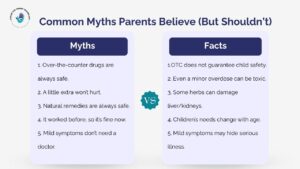Pravin Patole (Transplant Year: 2021)
Treatment : Liver Transplant
Saket Khadakkar (Transplant Year: 2021)
Treatment : Liver Transplant
Pravin Patole (Transplant Year: 2021)
Treatment : Liver Transplant
Saket Khadakkar (Transplant Year: 2021)
Treatment : Liver Transplant
Pravin Patole (Transplant Year: 2021)
Treatment : Liver Transplant
Saket Khadakkar (Transplant Year: 2021)
Treatment : Liver Transplant
Error: Contact form not found.
In October 2025, a heartbreaking incident occurred when 14 children lost their lives after consuming a cough syrup later found to be contaminated with toxic chemicals. The tragedy shocked the nation and reminded us that medicines are powerful substances — not harmless aids.
For children, who have developing organs and different metabolic systems compared to adults, even a slight mistake in medicine choice or dosage can cause severe harm. This incident underscores why parents must never give medicines to children without professional medical advice.
This article will guide parents through:
Why it is unsafe to medicate kids without a doctor’s prescription
How small dosage errors can harm the liver or kidneys
Why consulting doctors is essential
Practical steps for parents to ensure medicine safety
A child’s body processes drugs differently. Organs like the liver and kidneys are still maturing, and a medicine safe for adults can be dangerous for children. Even a “mild” drug can overload their system.
Medicines bought without prescription or from unreliable sources may be contaminated. When given to children, the results can be fatal, as seen in the recent case.
For children, the safe dosage range is very limited. A minor error, like giving an extra spoonful, may lead to toxicity.
Multiple medicines, or repeated doses, can strain the liver and kidneys, leading to failure.
Medicines that suppress symptoms may hide serious conditions, delaying proper treatment.
The liver metabolizes most drugs. In children, enzyme systems are immature. Overload can cause drug-induced liver injury (DILI), with symptoms like jaundice, vomiting, loss of appetite, and dark urine.
The kidneys filter drug metabolites. Many drugs are directly toxic to kidney tissues. Overdose or adulterated medicines can cause acute kidney injury, leading to reduced urine output or kidney failure.
Toxins like diethylene glycol are especially dangerous. They damage kidneys, the central nervous system, and can cause multi-organ failure. Children are highly vulnerable to such contaminants.

The recent tragedy serves as a painful reminder that self-medicating children is never safe. Parents must:
Medicines save lives — but only when used responsibly. With vigilance, professional guidance, and informed decision-making, parents can ensure their children stay safe and healthy.
Recent Comments